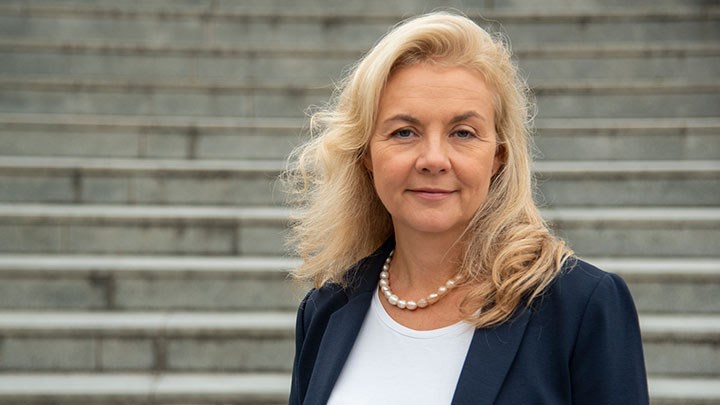Susanne Strand - new professor 2024

Susanne Strand is professor of criminology. Her research focuses on risk assessment and management of intimate partner violence. Much of her work involves collaboration with the police and social services.
“My aim is to ease the work for those dealing with these difficult issues by developing an evidence-based approach for crime prevention.”
1972 Born on Frösön
2006 Obtained her PhD at in health sciences at Mid Sweden University with her thesis Violence Risk Assessment in Male and Female Mentally Disordered Offenders – Differences and Similarities
2011 Docent in criminology, Mid Sweden University
2014 Adjunct at the Centre for Forensic Behavioural Science (CFBS), Swinburne University of Technology, Melbourne, Australia
2023 Professor of criminology, Örebro University
Susanne Strand has researched the risk of violence in various contexts since the mid-90s, with applied criminology as her academic base. Her research career began in forensic psychiatry on which she wrote her doctoral thesis.
“I studied how we assess the risk for individuals, who have already committed acts of violence, of doing so again – and whether there’s a difference when assessing men and women. It turned out that many important risk factors for violence have differing relevance for men and women. This means we sometimes underestimate the risk of women committing new violent crimes,” she says.
Motivated by the potential to improve methods
During this work, her interest in intimate partner violence was awakened. The reason was that she noticed that many of those who reoffended victimized someone they had a real or imagined relationship with. Her interest in intimate partner violence, stalking, and honour-related violence and oppression grew as she saw the potential to improve methods for these groups further. A significant part of that work was done in collaboration with the police after the turn of the millennium.
“My research has specifically shown that structured checklists are an effective method for the police to prioritize cases where protective actions need to be implemented to protect the victims.”
In 2010, she went to Australia, along with her family – to conduct research on stalking and intimate partner violence at the Centre for Forensic Behavioural Science – and she stayed, more or less. Since 2014, she has been an adjunct researcher there and, together with Professor Troy McEwan, has carried out several notable projects.
“It’s exciting to work with practice-oriented researchers in other countries where the societal structures are quite similar to study and compare our societal solutions. We conclude that it’s same, same, but different.”
“For me, it’s been a privilege having the opportunity to work closely with some of the world’s foremost researchers in the field. It’s both inspiring and educational. My family also appreciated Melbourne and continued joining me on my many trips there.”
Collaboration – key to protecting victims
In her current research in Sweden, Susanne Strand leads the research programme RISKSAM (Risk Management and Collaboration). The aim is to develop an effective evidence-based working method together with practitioners for the police, social services, and other actors for intimate partner violence, stalking, and honour-related violence and oppression. The goal for RISKSAM is to facilitate this work through structured collaboration and preventing violence, reduced stress for professionals, improved quality of life for victims and their children, and increased opportunities for treatment for perpetrators, regardless of where they live in the country – the rural perspective is a central part of the research.
“To prevent perpetrators from continuing to use violence, and at the same time protect the victims, society needs improved collaboration. Different measures are needed, and it’s necessary to understand better who needs what and when – to end the violence.”
Working across disciplines
Susanne Strand is head of research for the Centre for Violence Studies (CVS), an international multidisciplinary research environment at Örebro University. Researchers collaborate across disciplines to better understand, develop, and contribute knowledge about various forms of violence. One outcome of the CVS is a popular science journal in Swedish, Texter om våld or Texts of violence.
“It’s important for me as a researcher to collaborate with practitioners. To accomplish this, we researchers need to express what we do in an understandable way that hopefully arouses curiosity and inspiration, leading to new research questions.”
In 2023, Susanne Strand was appointed dean of the Faculty of Humanities and Social Sciences at Örebro University.
“It’s inspiring to work at a strategic level – and with the conditions available within academia, to enable researchers and teachers to develop and contribute to a wiser society.”
